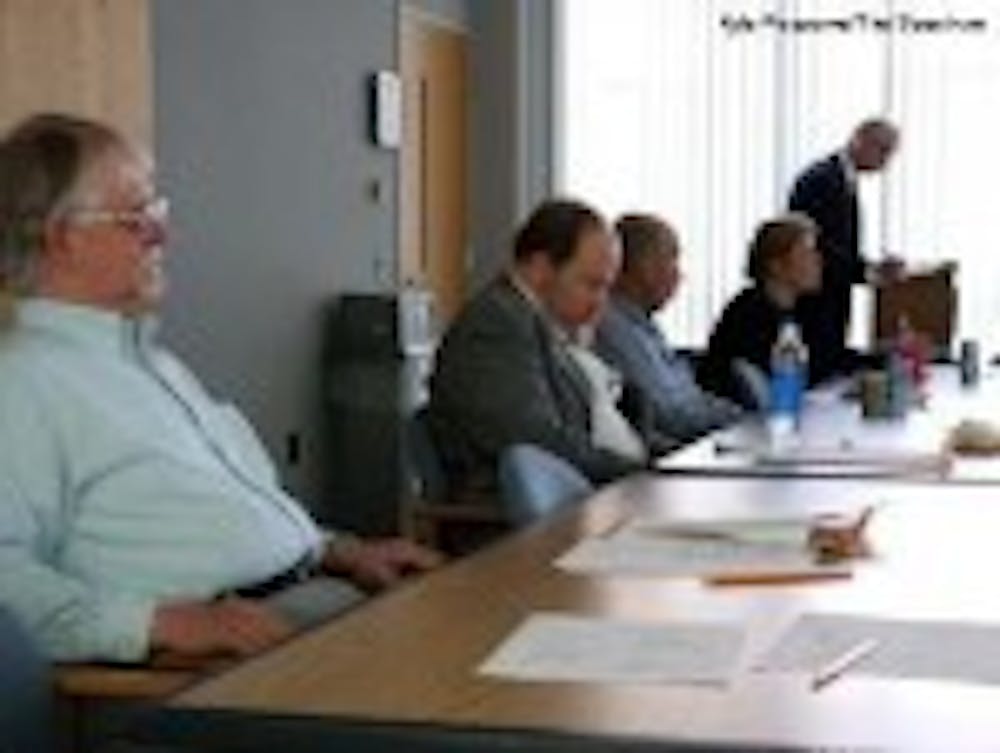UB's faculty conduct policies, which many critics over the years have called vague and unfamiliar, will finally be revamped.
Officials at Wednesday's Faculty Senate Executive Committee meeting said that the new Faculty Code of Conduct, at President Simpson's urging, would consolidate the several policies in use right now into one clear document.
Officials say they hope the new policy will provide a missing consistency while also clarifying the process for conduct violations, officials said.
Peter Nickerson, the chair of the Faculty Senate, said the new code might expand the scope of already existing conduct codes.
"We are trying to determine what specificity we need for this document," said Peter Nickerson, chair of the Faculty Senate. "It is not enough to simply reiterate what is said in already existing documents."
After talking on Wednesday about what generally should be included in the new code, the committee will meet in an executive session to discuss specific elements of it.
"We hope to coordinate policies between undergraduate and graduate departments, which often can have different policy applications of academic integrity and general grievances," Nickerson said.
President John Simpson asked the Faculty Senate to work on a singular, comprehensive policy upon his inauguration last October.
At Wednesday's meeting, Simpson said he feels this code will not be able to encompass all situations faculty will face, but it is a necessary document.
"There is no need to get ourselves into a sinkhole of getting into specifics of one in a million situations," Simpson said. "A code of conduct is something UB needs to ensure equity for policy application."
Philosophy professor William Baumer said he feels a conduct code should be more specific if possible.
"Interpretation of generality of a code of conduct may be necessary so that we avoid the problem of unequal application of the code," Baumer said.
Those who draft the new code will have a long list of potential issues to address: keeping office hours, meeting classes on time, scheduling make-up of cancelled classes, timely submission of grades, writing student recommendations in a timely manner and reasonable turnover for submitted materials.
Critics of the current policies have also demanded better clarity on the issue of student-faculty relationships outside the classroom.
Some students said they consider the relationship issue as the most important in any proposed code of conduct.
"Faculty should be held to high standards, said Catherine Agustiady, a senior biomedical sciences major. "Faculty are in a power position over students, and therefore should not have relationships of any kind with students. For me, that is the biggest issue (ethically) that should be addressed."
At Wednesday's meeting it was clear that student-faculty relationships could potentially be a major issue addressed in the revamping of the conduct code.
"If you are in a lab 70 hours a week with someone, people may form relationships," said chemistry professor Melvyn Churchill. "I know of faculty ending up marrying their students."
Churchill also said he would like to see the issue of intra-faculty dilemmas addressed in the new code.
"I would like to see actions between faculty occur with more civility," he said.





